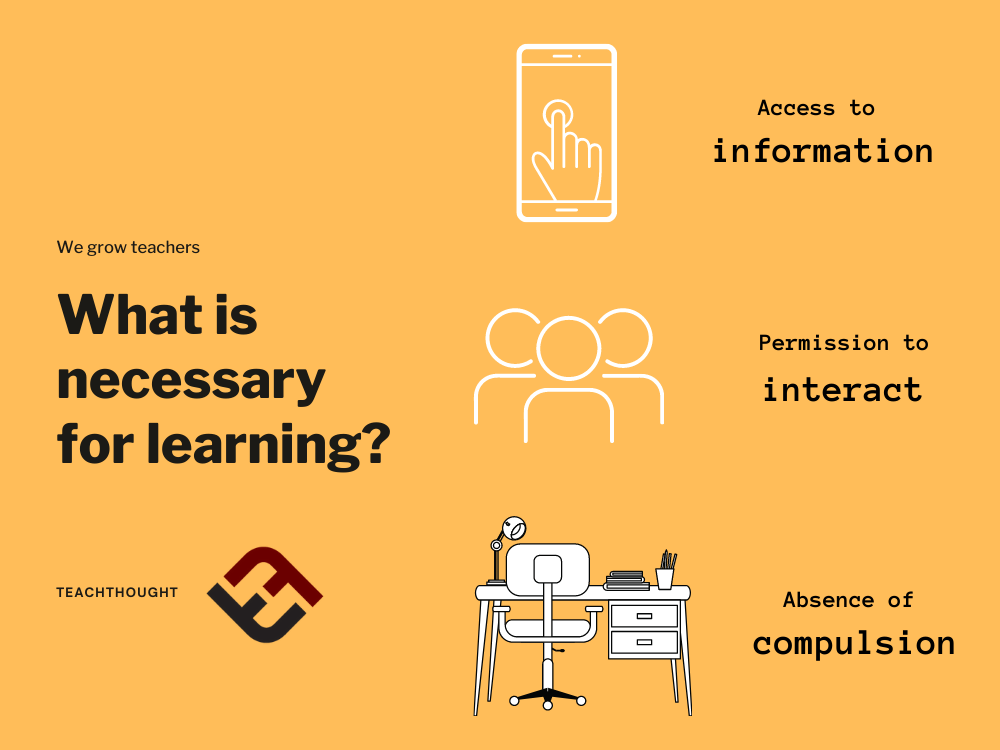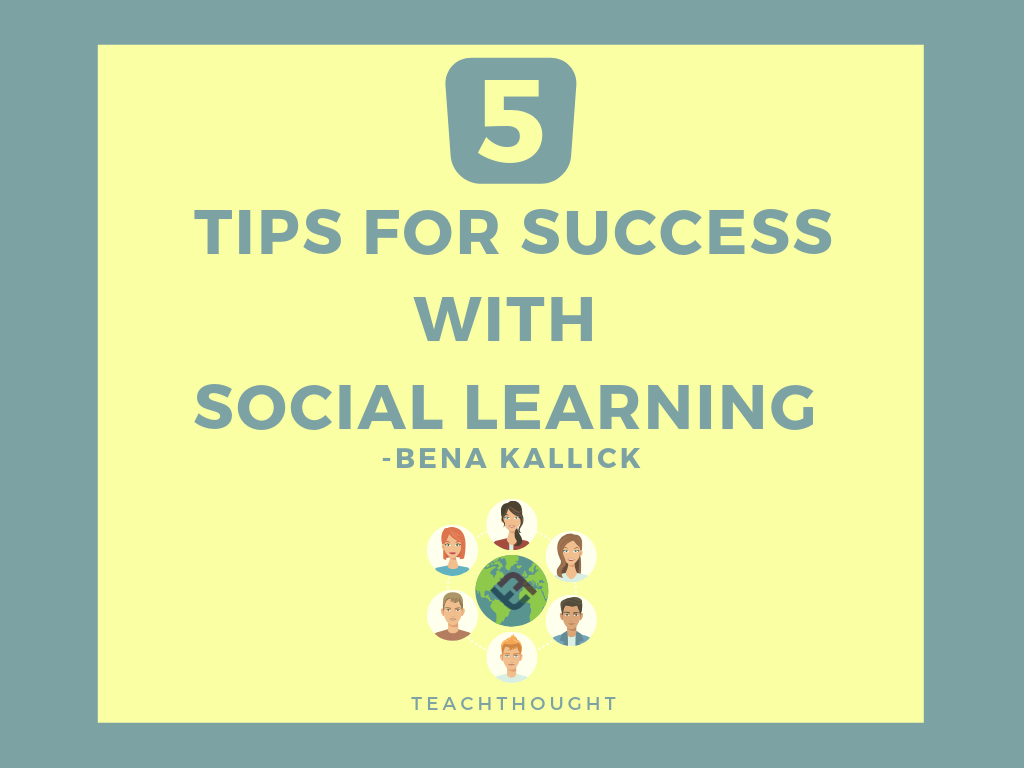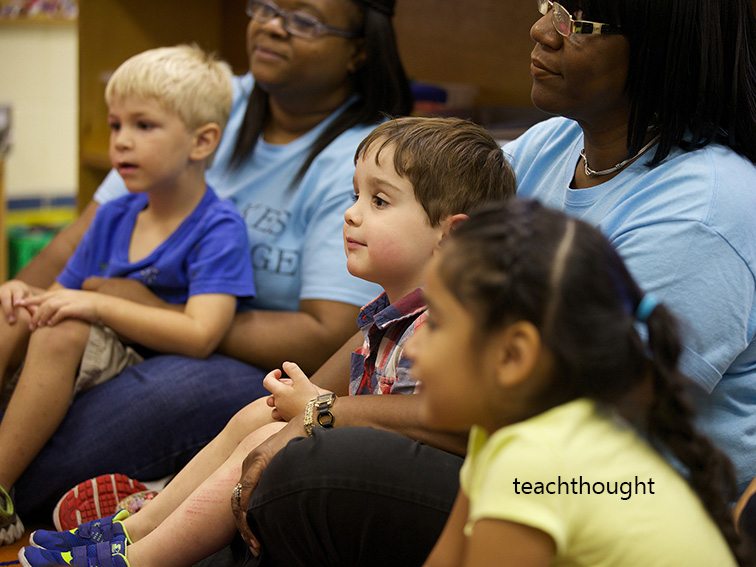
学习发生的事情是什么?
根据英格兰新闻公园大学教育技术教授的说法,并不多。
实际上,它可以减少到三种成分。明显的,Mitra在这里具有令人信服的可信度。他在2007年的墙上的工程项目产生了巨大的兴趣,当时儿童在没有正式培训的情况下,通过好奇心和同伴兴趣来刺激,儿童确实可以学习复杂的任务。
在学习批判性思维策略, I offered a variety of ‘ways’–cognitive actions, so to speak–students think critically about anything, explaining that “Critical thinking is the ongoing application of unbiased, accurate, and ‘good-faith’ analysis, interpretation, contextualizing, and synthesizing multiple data sources and cognitive perspectives in pursuit of understanding.”
那么三种成分是什么三种成分识别(2011年回到2018年的视频)这里联系在一起)?
视频摘要解释说:“与儿童教育的近二十年的实验带我们通过一系列令人震惊的结果 - 孩子可以自我组织自己的学习,他们可以自己实现教育目标,可以自己阅读。最后,他们最令人惊讶的是:有权访问互联网的儿童可以自己学习。这种学习的机制似乎类似于混乱系统中的自发秩序的外观或“紧急现象”。“
学习所需的三种(令人惊讶的)成分
1.互联网
2.互动许可
3.没有老师
自我导向学习不是一个新的想法,但这会进一步推动这一概念。At the end, he also explains the three necessary skills a ‘future’ 21st-century learner will need: reading comprehension (not much different than critical thinking), information retrieval (and evaluation, I’d assume), and how to believe (to resist conditioning and indoctrination).
学习的主要成分是什么?
当然,认知心理学说,许多因素会影响我们学习的多少和程度,其中在他们的能力,'之前的知识和动机中。
一般来说,我们获得新技能和知识的能力在个人之间变化;先验知识通常是我们做点什么的决定性因素;以及您学习特定主题的动机量可以直接影响您的性能。
Ultimately, what’s necessary for learning depends on who is learning what and why they’re learning it, but at the core of any analysis of these kinds of factors are access to knowledge and intrinsic motivation–which can result in ‘student engagement,’ curiosity, inquiry, informal learning, and more.



